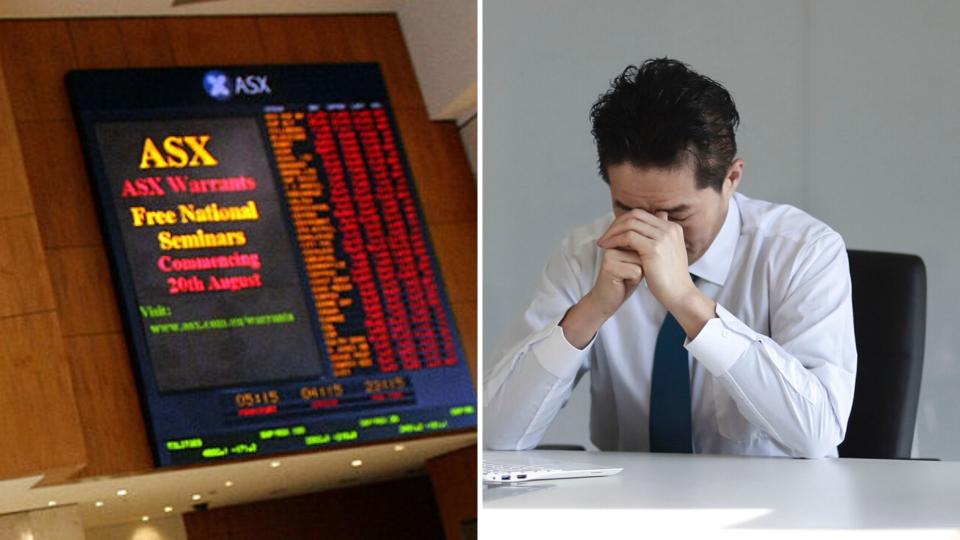SEA OF RED: $155bn wiped from Australian share market

The Australian share market lost about $155 billion in value on Monday, with rampant panic-selling hammering investors who were already nervous about the coronavirus outbreak.
The ASX200 index sunk 7.33 per cent, making Monday the worst single-day bloodbath since the dark days of the global financial crisis, which witnessed an 8.34 per cent plunge on October 10, 2008.
At close of trading on Monday the index sat at a two-year low of 5,760.6 points. According to AAP, the 456-point crash was the worst day of all-time in terms of points.
"It was almost a sea of red right from the opening bell," said Motley Fool expert Tristan Harrison.
"It wasn’t long ago that the ASX 200 was above 7,000 and now it’s at 5,760."
The Australian stock market has now shed almost 20 per cent of value since the peak of Thursday February 20, which was only 12 business days ago.
Monday's panic was triggered by the major oil-producing nations increasing production.
While this might soon mean $1 petrol for Australian motorists, on Monday it sent oil prices tumbling, which flowed onto the equities market.
The share prices of energy and mining companies were hit especially hard, according to Motley Fool, but tech, travel and banking also fell off a cliff.
Unfortunately, overnight the US markets followed Australia's lead.
Wall St's S&P500 index fell 7 per cent, which set off an automatic 15-minute shutdown that was created after the 2008 financial crisis.
Canadian shares plunged 10 per cent, which was the biggest fall since the infamous 1987 sharemarket crash.
“It’s been a while since I saw this kind of sell-off... But I’m not seeing the kind of yelling across the trading floor or people throwing in their towels like back in the old days. Perhaps it’s a difference in the generations I’m surrounded by now.”
The bad news for investors and superannuation holders is that further losses are expected on Tuesday. The predictor index SPI200 futures was down 4.97 per cent at 7am AEDT.
What does this mean for me?
Even though just 3 out of 10 Australians directly own shares, most people indirectly have wealth tied up in it because of compulsory superannuation.
Experts estimate the average super account to have about $100,000, which means the past 2.5 weeks have seen $20,000 lost for the typical Australian adult.
Make your money work with Yahoo Finance’s daily newsletter. Sign up here and stay on top of the latest money, news and tech news.
Follow Yahoo Finance Australia on Facebook, Twitter, Instagram and LinkedIn.

 Yahoo Finance
Yahoo Finance